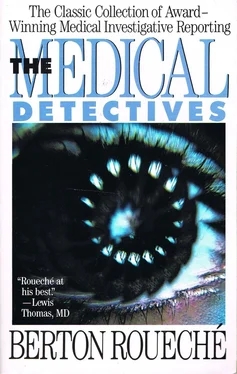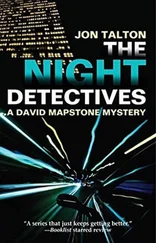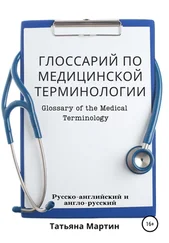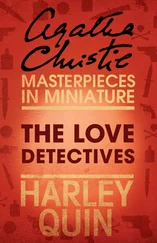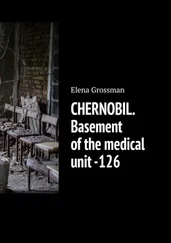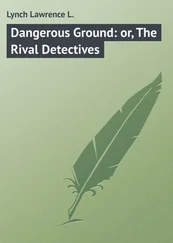"I might mention that with that diagnosis established, I called one of the doctors I had consulted earlier. I thought he would be interested. He was. He said, 'Hey, my wife has a greenhouse and she uses malathion. Is that a risk?' Well, I was certainly having what they call a learning experience. About the contemporary practice of medicine."
Dr. Page made a face. "But," she said, "good medicine or bad, tests—and I had them all—or not, I seemed to be getting a bit better. Some days were better than others, but I had only one sort of reversal. I woke one morning in March with real pain in my knee and some real weakness in my legs. The reason, when I thought about it, seemed clear enough. We had gone with some friends the night before to the annual Philadelphia Flower Show, at the Civic Center. To the opening night—very social, very black-tie. And, unfortunately, a tremendous amount of walking. The show contained acres—literally, acres—of the most fascinating displays, and I think we must have walked through them all. I just very foolishly overdid it. But that was the only setback. So then it was spring, and then Memorial Day was coming up, and I had the cleaning of the cottage to arrange. The state pesticide expert had insisted on that. I got in touch with a firm of industrial cleaners, and we set a date in May. We met at the cottage, two men and myself. It was a thorough scrub-down. They did the floors and the walls and the ceiling—it's a cathedral ceiling, with exposed beams. Plenty of surfaces. It's not my nature to just stand there. I pitched in and did the furniture. We also stripped the beds and took down the curtains and took off the slipcovers, all those things, and put them through the washer. Not only that. Before the scrub-down and after, we took samples by vacuum cleaner from all the likely places—door tops, kitchen cabinets, the baseboard radiators. The samples were sent to a commercial industrial lab—a company the state man knew about—and they did a professional analysis. When the results came through, they were shocking. All the samples—the before and the afters—showed significant amounts of organophosphates and methyl carbamates.
The exterminator's technicians had certainly done a thorough job. They hadn't missed a nook or a cranny. And they must have simply drenched the place.
"I say the lab reports were shocking, and they were. But I wasn't taken totally by surprise. Because by the time they came through I was sick again. I suppose what I did at the cottage was foolish. But it never occurred to me that there was still a risk there. After all, the spraying had ended back in October, and the cottage had been opened and repeatedly aired. Anyway, I went back on atropine, and it worked its usual wonders. The knee pain, the weakness, the twitching, the burning, all the neurological symptoms—they were just something I had to live with. I saw another neurologist. All the likely causes of polyneuropathy were excluded by appropriate studies. I didn't have diabetes, pernicious anemia, lead intoxication, collagen vascular disease, porphyria, or a malignancy. The diagnosis of organophosphate intoxication was reconfirmed. I talked with the state pesticide man, and he felt it was safe to use the cottage again if stringent precautions were taken—windows open, plenty of circulating air, fans. Which reminds me. Very early on, there was the question about Lewis and the cottage. Why wasn't he affected? The answer we decided on was fairly simple. By the time he arrived on Friday night, I had opened and aired the cottage. It was I who walked into the fumigation chamber every Friday afternoon. He didn't. Well, the summer of 1985 passed without any serious problems. I walked, and I swam a little, and I tried to play tennis. My left leg continued to hurt, but it's wonderful how one can get more or less used to pain. We closed the cottage, as usual, over Labor Day. Later in September, my knee flared up. It was really disabling. I had a friend and colleague, a rheumatologist, and I consulted her, hoping for some relief. And found it. She gave me a steroid injection, and for about ten days I was feeling great again. She referred me to an orthopedic surgeon for the procedure called arthroscopy—an examination of the interior of my knee. The surgeon did some repair work, but found no evidence of degenerative joint disease. I was put on an exercise program. Leg raising with weights. Hamstring lifts. Bicycling. Various things. I began, at long last, to improve.
"I think I'll move ahead for a minute. I'm thinking of the problem of the cottage. It was the beginning of everything, but it wasn't the end. It was the scene of my last naivete. That was the Memorial Day weekend in 1986. I went up to the lake on Friday afternoon as usual. I aired everything out—that was second nature now. The weather was cool for May, chilly, even. Lewis arrived late Friday night. We spent Saturday working around the place, preparing for another summer. Saturday night was almost cold. The heat came on—our baseboard electric heating system. I woke up in the middle of the night. Nausea. Abdominal cramps. Twitching. All the old familiar symptoms. I realized at once what had happened. In spite of everything, there must still be some organophosphate residue around. On the radiators, perhaps. And the heat had volatilized it and blown it around the cottage. Well, we decided to volatilize it right out of the cottage, so we turned all the radiators on high, opened all the doors and windows, and started up a couple of fans. I heated some milk. I had my atropine. Then we drove back home. The whole thing was unnerving. We were in a real quandary. What were we going to do about the cottage? Abandon it? We couldn't sell it. That would be practically criminal. What we finally did—what we have only just finished doing—was another, and really drastic, cleanup. More than a cleanup, actually. We brought in another toxic-waste-disposal team. We discarded all upholstered furniture and bedding. We removed and replaced the baseboard radiators. We removed and replaced all linoleum flooring. We washed in a detergent solution everything that could be washed—walls, floors, ceilings. Then we sealed the entire inside of the house with two coats of polyurethane sealant. I had to be there to supervise, but I wasn't taking any chances. I wore a toxic-cleanup suit with a double-filtered mask, gloves, boots, goggles. I looked like a monster from space. But I survived. We left the house open all summer. Doors and windows—everything. I don't know exactly what we're going to do. I don't want to sell the cottage. I've always loved it. We'll probably keep it. It is almost literally a brand-new building."
"That last experience at the cottage taught me something. The contamination that night from the radiators couldn't have amounted to much. It certainly had no effect on Lewis. But I was different. I was susceptible. I was exquisitely sensitized. I said the cottage was the beginning but that it wasn't the end. I don't know if there ever will be an end. I recovered from that last cottage exposure. I heard about a doctor who specialized in sports medicine, an expert on knees. He turned out to be wonderful. I began to get going again. He kept me on my exercise program, and encouraged me to branch out. Toward the end of the summer—the summer of 1986—I started seriously getting back into tennis. I mean, what's life without tennis! I signed up at a tennis school not far from home, a year-round school, with indoor courts. Actually, it was a general health facility. I worked with a coach a couple of days a week all through September and October and into November. Then, little by little, I began to get sick again. I remember one day I dragged myself over for a lesson and had to stop in the middle of play, I was so nauseated. I remember standing there leaning against the backstop and looking down at the court. It was a concrete slab on grade. And along the slab at the backstop were dozens, hundreds, of dead water bugs. I looked at all those dead bugs, and I had a horrible thought, a horrible suspicion. I called the therapist—the coach—over, and asked him if they by any chance had had any exterminating work done. He said, well, yes, some of the members had been complaining about an infestation of water bugs. The exterminators had made four visits in the course of the past twenty days. That was about the length of time I had been relapsing. I asked him if he knew what insecticides had been used. He didn't know, but there must have been something about the way I looked, and he said he could probably find out. So he made a phone call, and talked for several minutes, and came back with the answer. They used something, he said, called diazinon. Diazinon! Another organophosphate! For some harmless lit tie water bugs.
Читать дальше
